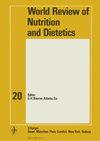Effect of Diet on Depression: A Review of Nutritional Solutions
4区 医学
引用次数: 1
Abstract
Depression is a mental illness with several categories that have common symptoms such as chronic sorrow, lack of interest, lack of pleasure, mood swings between guilt and poor self-esteem, sleep disturbances, and a loss of appetite. Over 300 million individuals globally suffer from depression, and the socioeconomic cost of this debilitating disorder is expected to rise dramatically in the future decades. Behavioral health illnesses can be prevented and treated to some extent with dietary and nutritional means. Nutritional psychiatry has produced observational and effectiveness evidence regarding the role of healthy dietary patterns in the onset and treatment of depressive symptoms. Diet is associated with depressive symptoms or depression, meaning that an increase in depressive disorders coincide with a deterioration in healthy living choices, including poor quality diets. Healthy eating habits and adequate intake of essential nutrients via the diet can help prevent and treat depression by reducing symptoms of mental illness. In addition, because nutrition is a modifiable risk factor for depression, it is practical for the public to consider dietary changes to reduce the prevalence of depressive disorders. This paper reviews the potential value of diet-based actions to manage depression, and ways in which dietary changes could be made to improve mental and cognitive health. Furthermore, some practical solutions for preventing and controlling depression are proposed based on health-related effects of improving dietary habits and life style.饮食对抑郁症的影响:营养解决方案综述
抑郁症是一种精神疾病,有几种常见症状,如慢性悲伤、缺乏兴趣、缺乏快乐、情绪在内疚和缺乏自尊之间波动、睡眠障碍和食欲不振。全球有超过3亿人患有抑郁症,这种使人衰弱的疾病的社会经济成本预计在未来几十年将急剧上升。行为健康疾病可以通过饮食和营养手段在一定程度上加以预防和治疗。营养精神病学已经提供了关于健康饮食模式在抑郁症状的发病和治疗中的作用的观察性和有效性证据。饮食与抑郁症状或抑郁有关,这意味着抑郁症的增加伴随着健康生活选择的恶化,包括低质量的饮食。健康的饮食习惯和通过饮食摄入足够的必需营养素可以通过减少精神疾病的症状来帮助预防和治疗抑郁症。此外,由于营养是抑郁症的一个可改变的风险因素,因此公众考虑改变饮食以减少抑郁症的患病率是可行的。本文回顾了以饮食为基础的行动来管理抑郁症的潜在价值,以及饮食改变可以改善心理和认知健康的方法。此外,根据改善饮食习惯和生活方式对健康的影响,提出了一些预防和控制抑郁症的实际解决方案。
本文章由计算机程序翻译,如有差异,请以英文原文为准。
求助全文
约1分钟内获得全文
求助全文
来源期刊

World review of nutrition and dietetics
Nursing-Nutrition and Dietetics
自引率
0.00%
发文量
114
期刊介绍:
Volumes in this series consist of exceptionally thorough reviews on topics selected as either fundamental to improved understanding of human and animal nutrition, useful in resolving present controversies, or relevant to problems of social and preventive medicine that depend for their solution on progress in nutrition. Many of the individual articles have been judged as among the most comprehensive reviews ever published on the given topic. Since the first volume appeared in 1959, the series has earned repeated praise for the quality of its scholarship and the reputation of its authors.
 求助内容:
求助内容: 应助结果提醒方式:
应助结果提醒方式:


